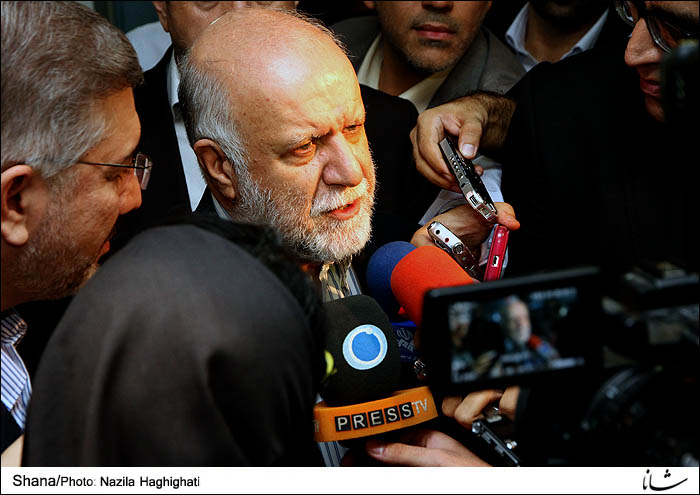 Irans Minister of Petroleum Bijan Namdar Zanganeh (file photo)[/caption]
Irans Minister of Petroleum Bijan Namdar Zanganeh (file photo)[/caption](Bloomberg) -- The Iranian oil ministry wont be able to pay staff or invest in boosting production if parliament proceeds with a plan to slash funding, according to Oil Minister Bijan Namdar Zanganeh.
The oil industrys situation is deplorable, Zanganeh said in comments reported by the state-run Islamic Republic News Agency. A draft bill reviewed by parliament Monday would cut the ministrys budget to $3 billion in the Iranian year that begins March 21. Thats down from $13 billion a year earlier.
This ministry will face problems in meeting the salaries of its staff let alone investing in joint oil and gas fields, Zanganeh said. How are we to manage the oil industry with such an amount?
Iran, whose crude exports are banned in Europe because of a dispute over the countrys nuclear program, revised its budget last month to assume a base price for oil of $40 a barrel from $72 previously. The Persian Gulf nation pumped 2.78 million barrels a day of oil in January, down from an average of 3.6 million in 2011, according to data compiled by Bloomberg.
Brent crude, the benchmark for more than half of the worlds oil, gained 44 cents to $61.92 a barrel on the ICE Futures Europe exchange in London as of 4:34 a.m. local time. Prices fell to $45.19 on Jan. 13, the lowest since March 2009.
We will face real crisis if parliament fails to allow the oil ministry to borrow about $4.8 billion from the National Development Fund, which is fed by oil revenue, Zanganeh said. The sale of bonds may be a way to attract the needed resources, he said.
By Bloomberg










